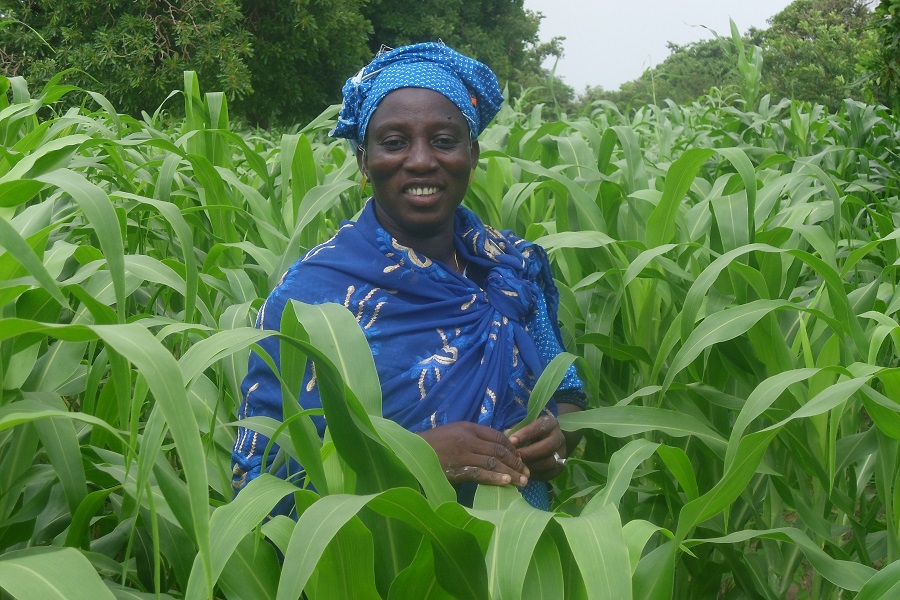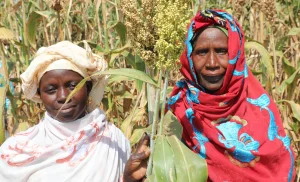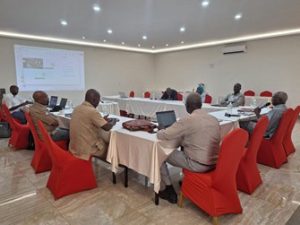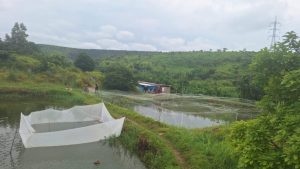African Development Bank approves phase II of TAAT programme
The African Development Bank has approved the commencement of phase two of the Technologies for African Agricultural Transformation (TAAT) programme. The Bank Group’s Board of Directors, on Friday, 15 July 2022, approved the release of an additional $27.41 million to implement Phase II of the programme.
At the 15 August 2022 signing of the protocol of agreement between the bank and the executing agency for TAAT, the International Institute of Tropical Agriculture (IITA), the bank lauded the giant strides recorded under TAAT-I, which has galvanised the investment of more than $800 million in agricultural value chain projects in 21 African countries.
It has also mobilised $500 million in co-financing from the World Bank, the International Fund for Agricultural Development (IFAD), the Islamic Development Bank (IsDB), the Global Environment Facility (GEF) and other organizations, such as the Bill & Melinda Gates Foundation that support the TAAT Clearinghouse operations.
“The Bank is well positioned to harness the power of the science, knowledge and innovation needed to catalyse Africa’s agricultural transformation through this investment. The Bank already has extensive experience in agricultural development assistance in Africa, and this additional funding will help us to consolidate the achievements of TAAT-I,” said Beth Dunford, African Development Bank Group Vice President for Agriculture and Human and Social Development.
Speaking on behalf of the IITA Director General, Dr Kenton Dashiell, the institute’s Deputy Director General, partnerships for delivery, commended the bank’s commitment to transforming African agriculture through its Feed Africa strategy as well as the trust reposed in the consortium of agricultural research institutions led by the IITA to implement the laudable objective of transforming African agriculture.
Dr Dashiell assured the bank that TAAT-II would work closely with African countries to support the implementation of the $1.5-billion African Emergency Food Production Facility. This facility was set up by the Bank in May 2022 to help African countries obtain additional resources for agricultural production to guard against an impending food crisis due to the war in Ukraine.
The facility is expected to provide certified seeds, fertilizers, extension services and post-harvest management technologies to 20 million farmers. It is expected to produce an additional 38 million tonnes of food (11 million tonnes of wheat, 18 million tonnes of maize, 6 million tonnes of rice and 3 million tonnes of soybeans) worth $12 billion over the next two years.
It would be recalled that countries that benefited from TAAT-I have substantially increased production and commercialization, raised farmers’ incomes and created job opportunities for women and youth. TAAT-I provided over 61,000 metric tons of heat-tolerant wheat seed varieties to Ethiopia. The seeds have enabled Ethiopia to boost its cultivated areas of wheat production from 50,000 hectares in 2018 to 167,000 hectares in 2021 and to 400,000 hectares in 2022.
In addition, Ethiopia has not imported wheat this year and is now producing wheat on 650,000 hectares and is on track to cultivating 2 million hectares next year. The country harvested 2.6 million tons and plans to begin exporting to Kenya and Djibouti next year.
Drawing largely on the results of TAAT-I, TAAT-II will strengthen national and regional seed-production systems to provide farmers with sufficient climate-resilient seeds, using a market-based model and helping local private sectors spread technologies and services (seeds, fertilisers, extension) on a larger scale in villages.
TAAT-II incorporates a nutrition compact (soybeans, vegetables, orange-flesh sweet potatoes and high iron beans) to develop nutrient-rich commodities, raise awareness and improve the adoption of foods with high nutritional values.
Established in 2018 as a key flagship programme of the Bank’s Feed Africa strategy (2016 – 2050), TAAT is a continent-wide initiative designed to boost agricultural productivity by rapidly delivering proven technologies to millions of farmers.
TAAT seeks to double crop, livestock, and fish productivity by expanding access to productivity-increasing technologies to more than 40 million smallholder farmers across Africa by 2025 and generating an additional 120 million metric tons.
Recent Stories
Related Stories
- TAAT wins National Association of Black Journalists Salute to Excellence Award
- TAAT records transformational breakthroughs in African agriculture as Phase I ends
- Sustainable cassava seed system is crucial to fighting hunger in Africa – Chief Olusegun Obasanjo
- TAAT gets $27 million boost for emergency production of 120 million tonnes of food
- TAAT, AfricaRice and Partners eye Rice Value Chain Revolution across Africa






